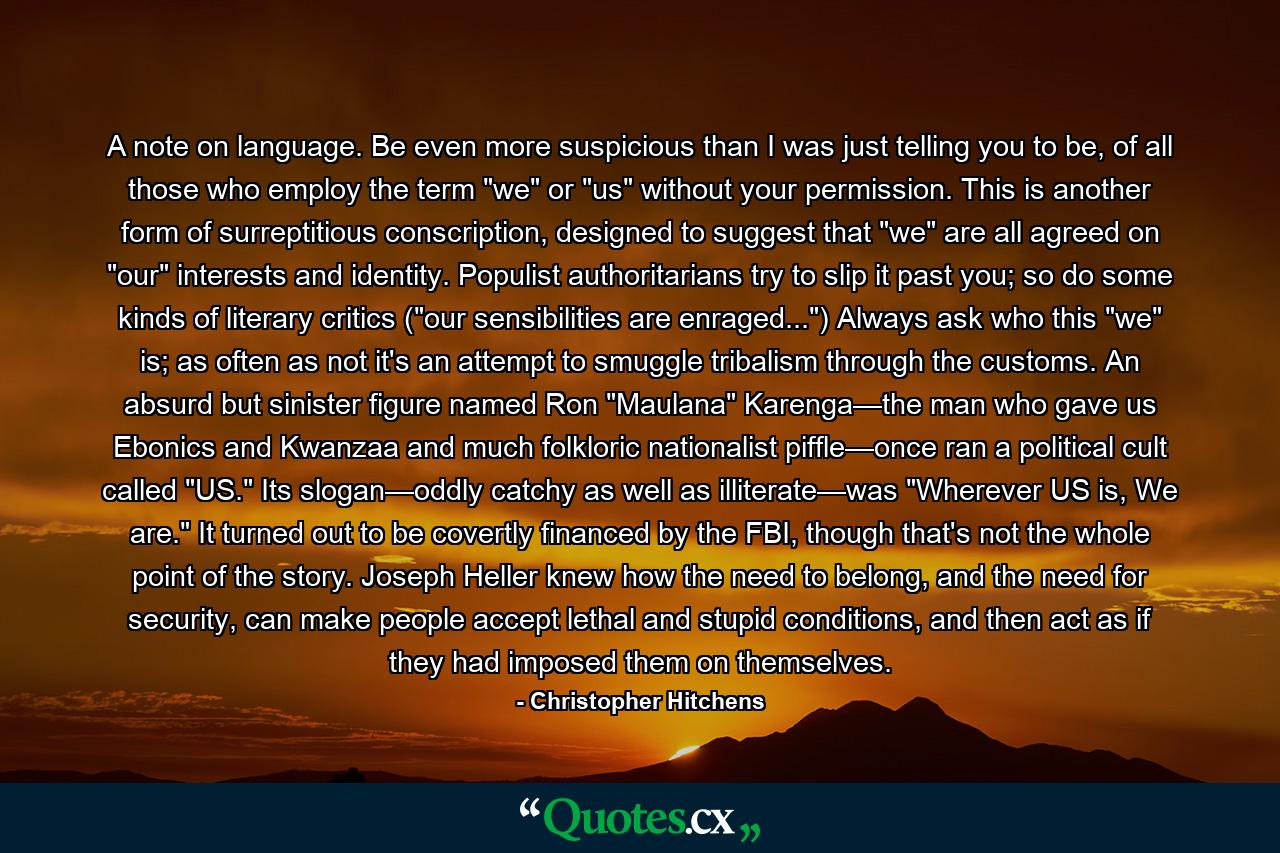A note on language. Be even more suspicious than I was just telling you to be, of all those who employ the term “we” or “us” without your permission. This is another form of surreptitious conscription, designed to suggest that “we” are all agreed on “our” interests and identity. Populist authoritarians try to slip it past you; so do some kinds of literary critics (“our sensibilities are enraged…”) Always ask who this “we” is; as often as not it’s an attempt to smuggle tribalism through the customs. An absurd but sinister figure named Ron “Maulana” Karenga—the man who gave us Ebonics and Kwanzaa and much folkloric nationalist piffle—once ran a political cult called “US.” Its slogan—oddly catchy as well as illiterate—was “Wherever US is, We are.” It turned out to be covertly financed by the FBI, though that’s not the whole point of the story. Joseph Heller knew how the need to belong, and the need for security, can make people accept lethal and stupid conditions, and then act as if they had imposed them on themselves.
